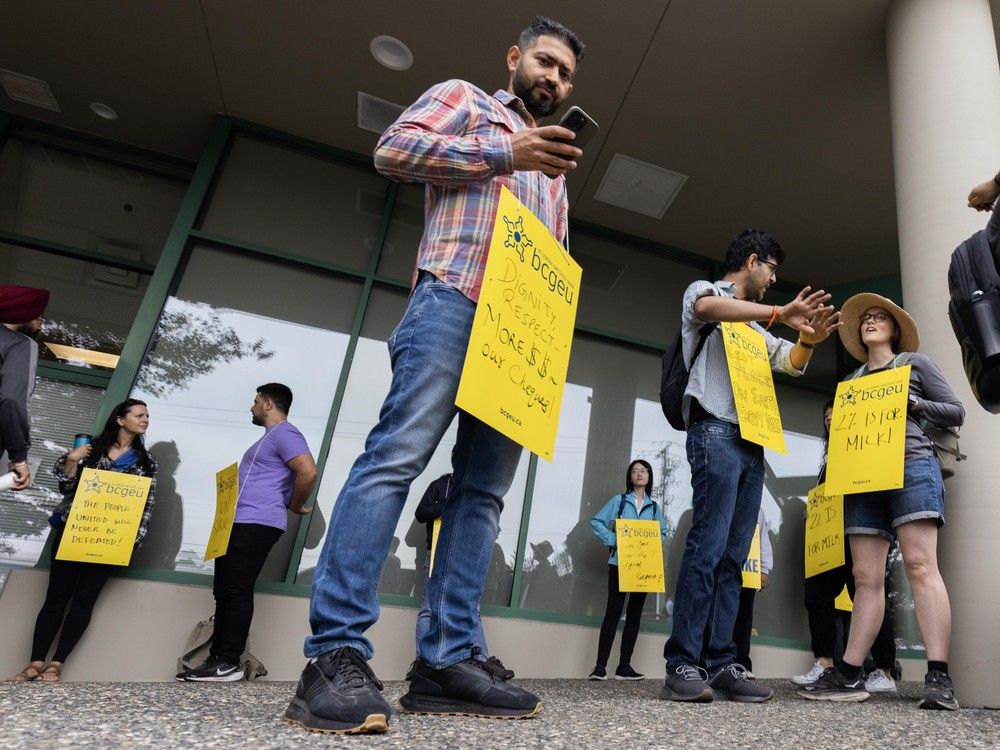BCGEU strike: NDP, unions are usually friends. Why that's different now

The B.C. NDP is currently facing a financial standoff with its long-time labour allies as it attempts to control government spending amidst demands from unions for wage increases to combat the ongoing cost-of-living crisis. Finance Minister Brenda Bailey has denied accusations that the government has put itself in a difficult financial position.
Recently, 2,000 members of the B.C. Government Employees’ Union took to picket lines at multiple locations in Victoria, Surrey, and Prince George after voting in favor of strike action. This move by the BCGEU, along with other public-sector unions with expired contracts, sets the stage for potentially challenging negotiations with the government in the coming months.
Under the current administration, the public service has seen a significant increase in size, leading to rising salaries that have contributed to a growing deficit. Unions argue that new government hires are being paid more than existing unionized workers, creating a disparity that needs to be addressed through cost-of-living adjustments.
The BCGEU, representing 34,000 civil servants, has requested a four percent raise, while the government has offered a lower amount. Union president Paul Finch has stated that if the government does not improve its offer to reflect the affordability crisis faced by workers, the job action may escalate.
Finance Minister Bailey has expressed willingness to negotiate a new collective agreement but emphasizes the need for operational efficiencies in light of global economic challenges. However, the union remains steadfast in its demand for raises, citing members struggling to meet rising expenses with stagnant wages.
Labour expert John-Henry Harter highlights the impact of inflation on public sector workers and suggests that the government should consider tax increases to finance wage agreements. He warns that failing to meet worker demands could lead to escalated job actions akin to recent airline industry disputes.
The ongoing contract negotiations have garnered support from various unions, with leaders standing in solidarity with the BCGEU. Nurses and teachers’ unions have expressed concerns about housing, safety, and support for vulnerable citizens during these uncertain economic times.
As talks continue between the government and unions, the possibility of job actions expanding and disrupting public services remains a concern. The Labour Relations Board is working to identify essential positions that will be required to continue working in the event of extended strike action.
Overall, the negotiations between the BCGEU and the government represent a critical juncture in addressing the needs of public sector workers amidst economic challenges. Both sides must find a balance that ensures fair compensation for workers while maintaining fiscal responsibility for the government.




